
Wishing You Were
Somehow Here Again
by Lloyd Webber
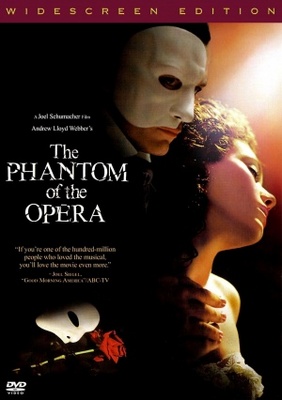
" Wishing You Were Somehow Here Again " is a song from The Phantom of the Opera. The Phantom of the Opera is a musical with music by Andrew Lloyd Webber and lyrics by Charles Hart. Richard Stilgoe and Lloyd Webber wrote the musical's book together. Stilgoe also provided additional lyrics. Based on the French novel of the same name by Gaston Leroux, its central plot revolves around a beautiful soprano, Christine Daaé, who becomes the obsession of a mysterious, disfigured musical genius living in the subterranean labyrinth beneath the Paris Opéra House.
The musical opened in London's West End at Her Majesty's Theatre in 1986, and on Broadway in 1988. It won the 1986 Olivier Award and the 1988 Tony Award for Best Musical, and Michael Crawford (in the title role) won the Olivier and Tony Awards for Best Actor in a Musical. It is the longest running show in Broadway history by a wide margin, and celebrated its 10,000th Broadway performance on 11 February 2012, the first production ever to do so. It is the second longest-running West End musical, after Les Misérables, and the third longest-running West End show overall, after The Mousetrap.
With total estimated worldwide gross receipts of over $5.6 billion and total Broadway gross of $845 million, Phantom was the most financially successful entertainment event until The Lion King surpassed it in 2014. By 2011, it had been seen by over 130 million people in 145 cities across 27 countries, and continues to play in London and New York.
[video width="640" height="360" mp4="https://www.easypianoonline.com/wp-content/uploads/2020/01/WishingYouWereSomehowHereAgain.mp4"]
Lyrics
You were once my one companion
You were all that mattered
You were once a friend and father
Then my world was shattered
Wishing you were somehow here again
Wishing you were somehow near
Sometimes it seem if I just dream
Somehow you would be here
Wishing I could hear your voice again
Knowing that I never would
Dreaming of you won't help me to do
All that you dreamed I could
Passing bells and sculpted angels
Cold and monumental
Seem for you the wrong companions
You were warm and gentle
Too many years
Fighting back tears
Why can't the past just die
Wishing you were somehow here again
Knowing we must say goodbye
Try to forgive teach me to live
Give me the strength to try
No more memories no more silent tears
No more gazing across the wasted years
Help me say goodbye'.
Songwriters: Andrew Lloyd Webber / Richard Henry Zachary S. Stilgoe / Charles A. Hart

[xyz-ihs snippet="NavigationLinksBlock-Common"]
When You Wish Upon A Star
by Leigh Harline
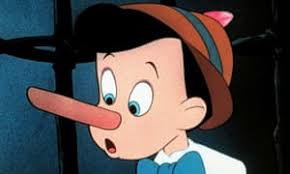
" When You Wish Upon A Star " is the signature song written by Leigh Harline and Ned Washington for Walt Disney's 1940 adaptation of Pinocchio. The original version was sung by Jiminy Cricket (Cliff Edwards) and is heard over the opening credits and in the final scene of the film. The song was universally praised upon its release. With its theme relating to wishes, dreams, and magic—all of which are synonymous with the Disney brand—the song has since become the anthem for the Walt Disney Company, most famously playing alongside the logo of Walt Disney Pictures before a film.
[video width="640" height="360" mp4="https://www.easypianoonline.com/wp-content/uploads/2020/01/WhenYouWishUponAStar.mp4"]
Lyrics
Makes no difference who you are
Anything your heart desires
Will come to you
If your heart is in your dream
No request is too extreme
When you wish upon a star
As dreamers do
Fate is kind
She brings to those to love
The sweet fulfillment of
Their secret longing
Like a bolt out of the blue
Fate steps in and sees you through
When you wish upon a star
Your dreams come true
Songwriters: Ned Washington / Leigh Harline

Victor’s Piano Solo
by Danny Elfman
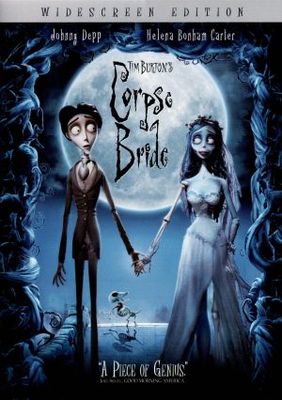
" Victor’s Piano Solo " is a song from Corpse Bride. Also known as Tim Burton's Corpse Bride is a 2005 stop-motion animated musical dark comedy film directed by Mike Johnson and Tim Burton with a screenplay by John August, Caroline Thompson and Pamela Pettler based on characters created by Burton and Carlos Grangel. The plot is set in a fictional Victorian era village in England. Johnny Depp leads the cast as the voice of Victor, while Helena Bonham Carter voices Emily, the titular bride. Corpse Bride is the third stop-motion feature film produced by Burton and the first directed by him (the previous two films, The Nightmare Before Christmas and James and the Giant Peach, were directed by Henry Selick). This is also the first stop-motion feature from Burton that was distributed by Warner Bros. Pictures. It was dedicated to executive producer Joe Ranft, who died in a car accident during production.
The film was a critical and commercial success and was nominated for the 78th Academy Awards for Best Animated Feature, but lost to Wallace & Gromit: The Curse of the Were-Rabbit, which also starred Bonham Carter. It was shot with Canon EOS-1D Mark II digital SLRs, rather than the 35mm film cameras used for Burton's previous stop-motion film The Nightmare Before Christmas (1993).
[video width="640" height="360" mp4="https://www.easypianoonline.com/wp-content/uploads/2020/01/VictorsPianoSolo_CorpseBride.mp4"]

Theme Of The Bells
by Mozart
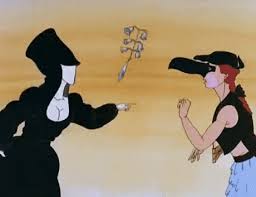
" Theme Of The Bells " is a theme from Mozart’s opera The magic Flute.
ACT ONE
Scene One
A young prince named Tamino is being chased by a serpent through a valley. After he falls unconscious, three ladies emerge from a temple and kill the snake. Tamino awakens and assumes the snake was killed by a good-natured bird catcher named Papageno who has just arrived on the scene. When Papageno accepts the credit, the three ladies reappear and place a padlock on his lips. They then show Tamino a picture of Pamina, the beautiful daughter of their mistress, the Queen of the Night. He immediately falls in love with her. They then tell him she has been kidnapped by the evil magician Sarastro. The Queen appears and asks Tamino to rescue Pamina, which he agrees to do. The ladies free Papageno and give him a magic set of chimes. They also give Tamino a magic flute and send the two off on their mission.
Scene Two
Pamina is being guarded by a villain named Monostatos, who is attempting to seduce her when Papageno wanders in. Frightened, Monostatos runs off, leaving Papageno to tell Pamina that her rescuer is close by.
Scene Three
Tamino is being led through Sarastro’s realm by three boys. He tries to enter the three temple doors, but is turned away from two. At the third, he is greeted by a priest, who tells him the Queen is really the evil one and the good Sarastro was merely trying to get Pamina away from her mother’s dark influence. Tamino rushes off to find Pamina; a moment later, she and Papageno enter, pursued by Monostatos. Papageno plays his magic bells, rendering the villain and his henchmen harmless. Sarastro enters and tells Pamina she is free to marry but not to return to her mother. Tamino is brought in by Monostatos, who demands a reward from Sarastro but instead gets punished.
ACT TWO
Sarastro informs the priests of Isis and Osiris about what is going on and explains that Tamino and Papageno are about to undergo the rites of initiation to determine if they are worthy to enter the Temple of Light. Tamino, who is brave, and Papageno, who is not, receive contradictory counsel from the priests and the Queen of the Night’s three ladies, but they decide to follow the priests, who take away the flute and bells from the pair. Monostatos attempts one last seduction of Pamina, but he is interrupted by the Queen who comes to her daughter and demands that she murder Sarastro. Instead, Pamina goes to Sarastro and begs forgiveness for her mother; he agrees, declaring that only love, not vengeance, will lead to peace and happiness. As part of their tests, both Tamino and Papageno are sworn to silence. An old woman approaches Papageno declaring that she is really eighteen years old and in love with him. She runs away, but three boys appear and give back to Tamino and Papageno the magic flute and bells. Pamina arrives, but she misunderstands Tamino’s silence and is heartbroken. Sarastro reassures her, but she is not comforted. Papageno says that he wants a sweetheart, and the old woman returns and reveals herself to be a young woman in disguise. Her name: Papagena. As soon as she reveals herself, however, a priest orders her away. Meanwhile, Pamina is about to commit suicide using the dagger her mother gave her to kill Sarastro. The three boys stop her and take her to Tamino, who is about to undergo the final trial. Pamina and Tamino go through the ordeal together, emerging unscathed thanks to the magic flute. Papageno rather reluctantly attempts to hang himself. Seeing this, the three boys suggest he play his magic bells. He does and Papagena appears; the two declare their intent to raise a large family. Meanwhile, Monostatos has joined forces with the Queen of the Night, but their plan to kill Sarastro is foiled by an earthquake. The opera ends with Sarastro, Tamino, and Pamina celebrating the victory of light over darkness.
[video width="640" height="360" mp4="https://www.easypianoonline.com/wp-content/uploads/2020/01/ThemeOfTheBells_MagicFlute.mp4"]

Sadness And Sorrow
by Purojekuto Musashi

" Sadness And Sorrow " is a song from Naruto. Naruto (ナルト) is a Japanese manga series written and illustrated by Masashi Kishimoto. It tells the story of Naruto Uzumaki, a young ninja who seeks to gain recognition from his peers and also dreams of becoming the Hokage, the leader of his village. The story is in two parts, the first set in Naruto's pre-teen years, and the second in his teens. The series is based on two one-shot manga by Kishimoto: Karakuri (1995), which earned Kishimoto an honorable mention in Shueisha's monthly Hop Step Award the following year, and Naruto (1997).
Naruto was serialized in Shueisha's magazine, Weekly Shōnen Jump from 1999 to 2014, and released in tankōbon (book) form in 72 volumes. The manga was adapted into an anime television series produced by Pierrot and Aniplex, which broadcast 220 episodes in Japan from 2002 to 2007; the English adaptation of the series aired on Cartoon Network from 2005 to 2009.
[video width="640" height="360" mp4="https://www.easypianoonline.com/wp-content/uploads/2020/01/SadnessAndSorrow.mp4"]

Hero
by Chad Kroeger
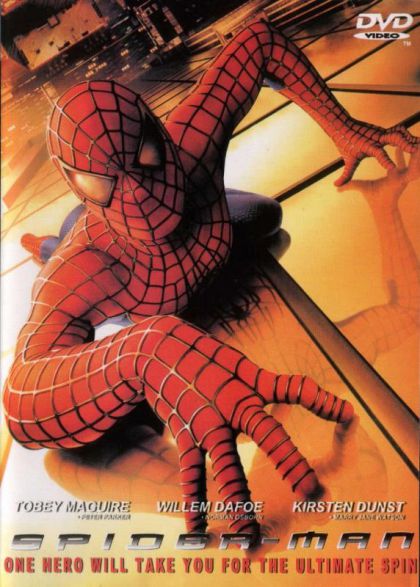
" Hero " is a song recorded by Chad Kroeger (lead vocalist of Nickelback) and Josey Scott (then lead vocalist of Saliva) for the soundtrack to the 2002 film Spider-Man. It was written by Kroeger and recorded specifically for the film. "Hero" was released through Roadrunner Records on March 1, 2002 as the soundtrack's lead single. The song serves as Kroeger's debut solo release.
There are two widely-available versions of the song: one with an orchestral background and one without. Mike Kroeger (bassist of Nickelback), Tyler Connolly (lead singer/guitarist of Theory of a Deadman), and Matt Cameron (drummer of Soundgarden) appear on the recording. In addition to its digital release, "Hero" was distributed internationally in various CD single and maxi single formats. Theory of a Deadman's "Invisible Man" was included on many of these releases.
"Hero" experienced worldwide commercial success, peaking in the top 10 of record charts in Austria, Canada, Denmark, Germany, Ireland, New Zealand, Sweden, Switzerland, the United Kingdom, and the United States. The song also topped the US Billboard Mainstream Rock and Modern Rock airplay charts. It was nominated for Best Song Written for a Motion Picture, Television or Other Visual Media, Best Rock Performance by a Duo or Group with Vocal; and Best Rock Song at the 45th Grammy Awards (2003).
[video width="640" height="360" mp4="https://www.easypianoonline.com/wp-content/uploads/2020/01/Hero_SpiderMan.mp4"]
Lyrics
I am so high, I can hear heaven
I am so high, I can hear heaven
Whoa, but heaven no, heaven don't hear me
And they say
That a hero could save us
I'm not gonna stand here and wait
I'll hold onto the wings of the eagles
Watch as we all fly away
Someone told me
Love would all save us
But, how can that be
Look what love gave us
A world full of killing
And blood spilling
That world never came
And they say
That a hero could save us
I'm not gonna stand here and wait
I'll hold onto the wings of the eagles
Watch as we all fly away
Now that the world isn't ending
It's love that I'm sending to you
It isn't the love of a hero
And that's why I fear it won't do
And they say
That a hero could save us
I'm not gonna stand here and wait
I'll hold onto the wings of the eagles
Watch as we all fly away
And they're watching us
They're watching us
As we all fly away
And they're watching us
They're watching us
As we all fly away
And they're watching us
They're watching us
As we all fly away
Songwriters: Chad Kroeger

Don’t Forget
by Toby Fox

" Don’t Forget " is a song from Deltarune. Deltarune is a role-playing video game created by American indie developer Toby Fox. The player controls a human, Kris, in a world inhabited by monsters. Kris and a classmate named Susie fall into an unknown place called the "Dark World" where they meet Ralsei, who informs them that they are heroes destined to restore balance to the world. The duo meets various beings who call themselves "Darkners" during a prophesied quest to seal the duplicate Dark Fountain. Mainly through the combat system, the player navigates through different kinds of bullet hell attacks by enemies, which can be resolved peacefully or through violence.
Development of Deltarune began in 2012. The battle system was overhauled, being more similar to the one used in Final Fantasy games. The first chapter of the game was released for free on October 31, 2018 for Microsoft Windows and macOS; the Nintendo Switch and PlayStation 4 editions were released on February 28, 2019. A full release is planned, but no release date has been announced yet. The soundtrack, characters and sense of humor was praised by critics, but they had a more mixed reactions towards its similarities to Undertale.
[video width="640" height="360" mp4="https://www.easypianoonline.com/wp-content/uploads/2020/01/DontForget_Deltarune.mp4"]
Lyrics
When the light is running low
And the shadow start to grow
And the places that you know
Seem like fantasy
There's a light inside your soul
That's still shining in the cold
With the truth
The promise in our hearts
Don't forget
I'm with you in the dark
Songwriters: Toby Fox

Die Forelle
by Franz Schubert
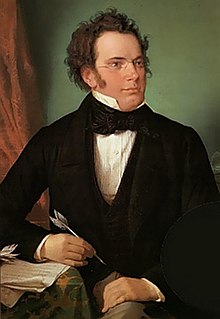
" Die Forelle " (German for "The Trout"), Op. 32, D 550 is a lied, or song, composed in early 1817 for solo voice and piano with music by the Austrian composer Franz Schubert (1797–1828). Schubert chose to set the text of a poem by Christian Friedrich Daniel Schubart, first published in the Schwäbischer Musenalmanach in 1783. The full poem tells the story of a trout being caught by a fisherman, but in its final stanza apparently reveals its purpose as a moral piece warning young women to guard against young men.
In reality, the poem was an analogy on the fate of its writer, the poet Schubart, who for many years was imprisoned for his criticism of absolute rule in Württenberg. The last «didactic» verse was added to make the parallel less obvious.
When Schubert set the poem to music, he removed the last verse, which contained the «moral», and in order to prevent any attempt by posterity to reintroduce it, he gave the song a closed A–B-A form. In the new version the poem can be interpreted both as a tribute to the beauty of nature and a defence of the right of free speech.
The effect was also a change in the song's focus, at the same time enabling it to be sung by both male and female singers. Schubert produced six subsequent copies of the work, all with minor variations.
[video width="640" height="360" mp4="https://www.easypianoonline.com/wp-content/uploads/2020/01/DieForelle.mp4"]
Lyrics
In a little brook bright shot in a happy hurry,
In einem Bächlein helle da schoß in froher Eil,
The capricious trout passed like an arrow.
Die launische Forelle vorüber wie ein Pfeil.
I stood on the bank and saw in sweet calm
Ich stand an dem Gestade und sah in süßer Ruh
The cheeky Fischlein bathes in the clear brook.
Des muntern Fischleins Bade im klaren Bächlein zu.
A fisherman with the rod was probably standing on the bank,
Ein Fischer mit der Rute wohl an dem Ufer stand,
And saw with cold blood how the little fish twisted.
Und sah's mit kaltem Blute, wie sich das Fischlein wand.
As long as the water is bright, I thought, not broken
So lang dem Wasser Helle, so dacht ich, nicht gebricht,
So he doesn't catch the trout with his fishing rod.
So fängt er die Forelle mit seiner Angel nicht.
But finally time was too long for the thief.
Doch endlich ward dem Diebe die Zeit zu lang.
He makes
Er macht
The brook treacherously cloudy and before I thought it
Das Bächlein tückisch trübe, und eh ich es gedacht,
So his tail twitched, the little fish fidgeted,
So zuckte seine Rute, das Fischlein zappelt dran,
And I looked at the betrayed girl with brisk blood.
Und ich mit regem Blute sah die Betrogene an.
You who dwell at the golden spring of safe youth
Die ihr am goldenen Quelle der sicheren Jugend weilt,
Think of the trout, you see danger, so hurry!
Denkt doch an die Forelle, seht ihr Gefahr, so eilt!
Most of the time she's just missing for lack of prudence, girl, see
Meist fehlt ihr nur aus Mangel der Klugheit, Mädchen, seht
Angel seduce!
Verführer mit der Angel!
Otherwise you will bleed too late!
Sonst blutet ihr zu spät!
Songwriters: Franz Schubert, Christian Friedrich Daniel Schubart

Angel of Music
by Andrew Lloyd Webber
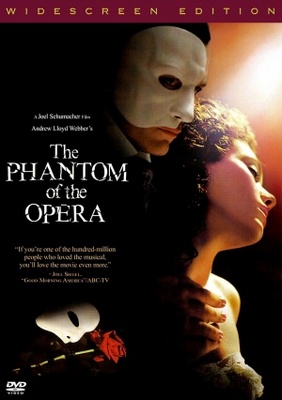
" Angel of Music " is a song from The Phantom of the Opera. The Phantom of the Opera is a musical with music by Andrew Lloyd Webber and lyrics by Charles Hart. Richard Stilgoe and Lloyd Webber wrote the musical's book together. Stilgoe also provided additional lyrics. Based on the French novel of the same name by Gaston Leroux, its central plot revolves around a beautiful soprano, Christine Daaé, who becomes the obsession of a mysterious, disfigured musical genius living in the subterranean labyrinth beneath the Paris Opéra House.
The musical opened in London's West End at Her Majesty's Theatre in 1986, and on Broadway in 1988. It won the 1986 Olivier Award and the 1988 Tony Award for Best Musical, and Michael Crawford (in the title role) won the Olivier and Tony Awards for Best Actor in a Musical. It is the longest running show in Broadway history by a wide margin, and celebrated its 10,000th Broadway performance on 11 February 2012, the first production ever to do so. It is the second longest-running West End musical, after Les Misérables, and the third longest-running West End show overall, after The Mousetrap.
With total estimated worldwide gross receipts of over $5.6 billion and total Broadway gross of $845 million, Phantom was the most financially successful entertainment event until The Lion King surpassed it in 2014. By 2011, it had been seen by over 130 million people in 145 cities across 27 countries, and continues to play in London and New York.
[video width="640" height="360" mp4="https://www.easypianoonline.com/wp-content/uploads/2020/01/AngelOfMusic.mp4"]
Lyrics
Bravi, bravi, bravissimi!
Where in the world
Have you been hiding?
Really - you were perfect
I only wish
I knew your secret
Who is this new
Tutor?
Father once spoke of an angel
I used to dream he'd appear
Now as I sing I can sense him
And I know he's here
Here in this room he calls me softly
Somewhere inside, hiding
Somehow I know he's always with me
He, the unseen genius
Christine, Christine you must have been dreaming
Stories like this can't come true
Christine, you're talking in riddles
And it's not like you
Angel of music, guide and guardian
Grant to me your glory
Who is this angel?
This
Angel of music, hide no longer
Secret and strange angel
He's with me even now
Your hands are cold
All around me
Your face, Christine, it's white
It frightens me
Don't be frightened
Songwriters: Andrew Lloyd Webber / Charles Hart / Richard Stilgoe

Playlist of Tutorials for Songs from Superheroes (List Ordered by Song Name) A B C D E F G H I J K L M…

Playlist of Tutorials for Songs from Mozart, Wolfgang Amadeus (List Ordered by Song Name) A B C D E F G H I J K…

Playlist of Tutorials for Songs from Hisaishi, Joe (List Ordered by Song Name) A B C D E F G H I J K L…

Playlist of Tutorials for Songs from Elfman, Dany (List Ordered by Song Name) A B C D E F G H I J K L…

Storybook Love
by Mark Knopfler
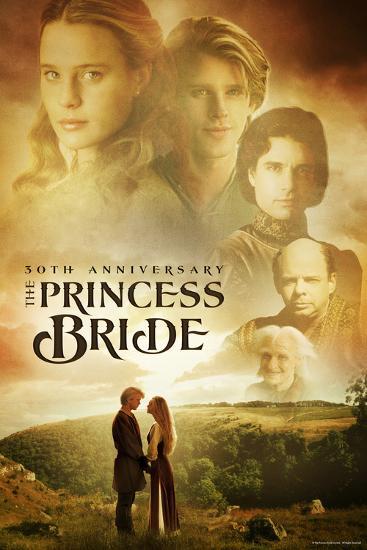
" Storybook Love " is a song from the soundtrack album The Princess Bride by British singer-songwriter and guitarist Mark Knopfler, released on 12 November 1987 by Vertigo Records internationally, and by Warner Bros. Records in the United States. The album contains music composed for the 1987 film The Princess Bride, directed by Rob Reiner. The album features the song "Storybook Love", written and performed by Willy DeVille and arranged by Mark Knopfler. In 1988, the song received an Academy Award nomination for Best Original Song.
[video width="640" height="360" mp4="https://www.easypianoonline.com/wp-content/uploads/2020/01/StorybookLove.mp4"]
Lyrics
Come my love I'll tell you a tale
Of a boy and girl and their love story
And how he loved her oh so much
And all the charms she did possess
Now this did happen once upon a time
When things were not so complex
How he worshipped the ground she walked
And when he looked in her eyes he became obsessed
My love is like a storybook story
But it's as real as the feelings I feel
My love is like a storybook story
But it's as real as the feelings I feel
It's as real as the feelings I feel
This love was stronger than the powers so dark
A prince could have within his keeping
His spells to weave and steal a heart
Within her breast but only sleeping
My love is like a storybook story
But it's as real as the feelings I feel
My love is like a storybook story
But it's as real as the feelings I feel
It's as real as the feelings I feel
Now he said, "Don't you know I love you oh so much
And lay my heart at the foot of your dress?"
She said, "Don't you know that these storybook loves
Always have a happy ending?"
Then he swooped her up just like in the books
And on his stallion they rode away
My love is like a storybook story
But it's as real as the feelings I feel
My love is like a storybook story
But it's as real as the feelings I feel
Songwriters: Willy De Ville, Mark Knopfler

Playlist of Tutorials for Songs from Zimmer, Hans (List Ordered by Song Name) A B C D E F G H I J K L…







































